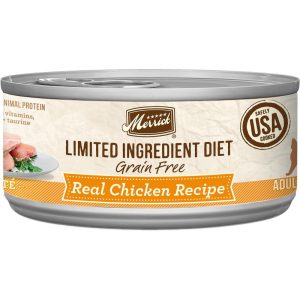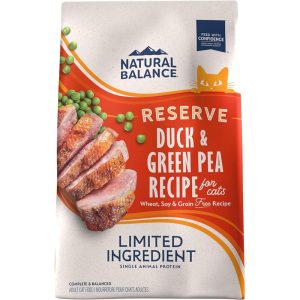Table of Contents
As a loving cat mom, I’ve seen firsthand how stomach sensitivities can affect our feline friends. That’s why I’m dedicated to sharing my knowledge about the best cat foods for sensitive stomachs. A sensitive tummy doesn’t have to mean a compromised diet; with the right information, you can find a nutritious and delicious option that will have your cat purring with appreciation.
Finding the perfect balance of nutrients, while avoiding irritants, can be a game-changer for your cat’s digestive health. In this ultimate guide, I’ll walk you through everything you need to know to make an informed decision, from identifying symptoms to selecting the ideal cat food for your sensitive kitty.
Understanding Sensitive Stomachs in Cats
Dealing with sensitive stomachs in cats can be a complex journey, but understanding the condition is the first step towards relief. Since nearly 30% of cats experience digestive issues, it’s crucial to recognize the signs and consider specialized dry cat food options tailored to these needs.
Identifying Symptoms of a Sensitive Stomach
When my cat started showing signs of stomach issues, I knew I had to act fast. Chronic vomiting, more than the occasional hairball, was my first clue. It was heart-wrenching to see her in discomfort, struggling with loose stools and a noticeable lack of appetite. These symptoms can be alarm bells for sensitive stomachs and may require a closer look at her diet.
Weight loss and excessive gas were also telltale signs that my cat was showing. Observing these symptoms prompted me to reassess her meals and consider switching to a diet formulated for feline friends with finicky digestive tracts. If your cat is showing similar signs, it’s essential to monitor their condition and consult with a vet for a tailored approach to their nutrition.
Advantages of Specialized Cat Food for Sensitive Stomachs
I’ve witnessed a transformation in my cats’ health after switching them to specialized cat food for sensitive stomachs. These formulas are often crafted with easily digestible proteins and a balance of fibers that aid digestion, reducing the strain on their delicate systems. Plus, they’re designed to minimize the risk of triggering food sensitivities.
By choosing limited-ingredient cat food, I’ve also minimized the potential irritants that could upset my cats’ tummies. These diets focus on simple, high-quality ingredients that provide all the necessary nutrients without any unnecessary additives. It’s been a relief to see my fur babies thrive on these carefully selected meals.
Key Ingredients to Look for in Cat Food for Sensitive Stomachs
When scouring the shelves for the right cat food, I’ve learned to look for limited-ingredient cat food that features a blend of prebiotics, probiotics, and essential vitamins. These ingredients support a healthy gut flora and ensure my cats get the nutrients they need for a robust digestive system.
Beneficial Probiotics and Prebiotics
I never underestimate the power of probiotics and prebiotics in my cats’ diet. These beneficial bacteria keep their gut health in check, reducing symptoms associated with sensitive stomachs. I always make sure their food includes these to help maintain the delicate balance of their digestive ecosystem.
Prebiotics act as food for these good bacteria, ensuring that they thrive and contribute to a healthy gut. With the right combination of probiotics and prebiotics, I’ve noticed a significant decrease in my cats’ digestive discomfort, making mealtime a joy rather than a worry.
Essential Vitamins and Minerals for Digestive Health
My research has also led me to appreciate the importance of essential vitamins and minerals for my cats’ digestive health. These nutrients play a crucial role in ensuring that their bodies can efficiently process and absorb the goodness from their food.
From the muscle-building power of high-quality protein sources like chicken and salmon to the immune-boosting properties of vitamins A, E, and B-complex, I make sure their food is packed with everything they need to stay healthy, inside and out.
Importance of High-Quality Protein Sources
High-quality protein sources are the cornerstone of a nutritious diet for my cats, especially given their carnivorous nature. I pay close attention to the protein content in their food, ensuring it comes from reputable sources that will nourish without causing any adverse reactions.
It’s essential to provide them with a variety of protein sources to prevent allergies and keep their meals interesting. I’ve found that rotating between different proteins like turkey, lamb, and fish helps keep my cats eager to eat while supporting their overall health.
The Role of Wet vs Dry Food in Managing Sensitivities
In my experience, choosing between wet and dry food for cats with sensitive stomachs can make a significant difference in their comfort and health.
Comparing the Digestibility of Wet and Dry Foods
Through trial and error with my cats, I’ve learned that wet foods tend to be more digestible due to their higher protein and lower carbohydrate content. Dry foods, which often have more carbs, can sometimes be tougher on my cats’ tummies. So, I typically lean towards wet food to make sure they’re getting the most out of their meals without any digestive drama.
Hydration’s Impact on a Sensitive Stomach
I’ve always emphasized the importance of hydration for overall health, especially for cats with sensitive stomachs. Wet food plays a big role in this, as it naturally increases their water intake and helps everything move smoothly through their system. It’s one of those simple changes that can have a big impact on their well-being.
Tailored Nutrition: Grain-Free and Limited Ingredient Diets
Personalizing my cats’ diet to meet their individual needs has involved exploring grain-free and limited ingredient options, focusing on high-quality, easily digestible ingredients.
Exploring the Benefits of Grain-Free Options
Grain-free diets can be a great choice for some cats, particularly those with sensitivities. These foods often contain a limited number of ingredients, which can minimize the risk of food allergies and support digestion and overall health. Deboned chicken, as a single-source protein, is a common component I look for, providing the quality nutrition my cats need without excess fillers or additives.
1. Merrick Limited Ingredient Diet Grain-Free Real Chicken Recipe
As a cat mom, I always prioritize my feline friends’ health, which is why I’m a fan of Merrick Limited Ingredient Diet Grain-Free Real Chicken Recipe. This formula features deboned chicken as the primary ingredient, offering a single-source animal protein that’s perfect for cats with sensitive stomachs. The grain-free recipe eliminates common irritants and focuses on easily digestible ingredients to keep my kitties feeling their best. Plus, it’s packed with essential nutrients to support overall health.
Importance of Limited Ingredient Diets
Limited ingredient diets are crucial for cats like mine with sensitive stomachs. These diets simplify the intake of food, making it easier to identify and eliminate allergens or irritants. By focusing on key components, we can prevent adverse reactions and promote easier digestion, ensuring our feline friends stay comfortable and nourished.
3. Natural Balance L.I.D. Limited Ingredient Diets Dry Cat Food
Natural Balance L.I.D. Limited Ingredient Diets Dry Cat Food has been a lifesaver for my cats’ sensitive digestion. With a focus on simplicity, it supports both joint health and urinary tract health, thanks to its targeted nutrition. The limited ingredients minimize the risk of digestive issues, and the inclusion of high-quality proteins and essential nutrients helps maintain strong bones and overall wellness for my furry companions.
When to Consult a Veterinarian
As a dedicated cat mom, I know the importance of recognizing when it’s time to consult a vet. If my cats show symptoms that persist or worsen despite dietary changes, I don’t hesitate to seek professional advice. It’s essential to rule out any health issues that may require medical intervention.
Navigating Food Allergies and Intolerances
Food allergies and intolerances can be a real challenge for cats. That’s why I’m always observant of any signs of discomfort after my cats eat. If I notice any unusual reactions, I consult my vet immediately to determine if it’s an allergy or intolerance. Together, we work on finding a diet that suits their specific needs and keeps them healthy and happy.
Transitioning to a New Sensitive Stomach Diet Safely
Transitioning my cats to a new sensitive stomach diet requires patience and care. I’ve learned it’s best to introduce the new food gradually over a week or so, mixing it with their current food in increasing amounts. This helps their stomachs adjust without causing additional stress or discomfort. Watching them for any signs of digestive upset during this time is also crucial.
Cat Owner’s Guide: Frequently Asked Questions
As a cat owner, I’ve had my share of questions about caring for my feline friends. It’s important to learn about your cat’s health and dietary needs, so you’re prepared to provide the best care possible. I’ll share insights on how to recognize if your cat has a sensitive stomach and tips on feeding frequent meals that are gentle on the digestive system.
1. Deciphering cat food labels for sensitive digestion
Understanding cat food labels is like solving a puzzle. I’ve learned to look for natural ingredients and steer clear of fillers that might upset my cats’ sensitive stomachs. It’s all about finding a balance between the necessary nutrients and keeping the ingredient list short to avoid potential allergens or irritants.
2. Home remedies vs commercial diets: what’s best for your cat?
Choosing between home remedies and commercial diets for sensitive stomachs can be tricky. I’ve found that while home remedies can offer temporary relief, commercial diets are formulated with specific nutrients that support my cats’ long-term health. It’s all about what’s best for your cat and their unique needs.
The Final Verdict: Top Picks for Sensitive Stomach Cat Food
After trying various options, I’ve found a few top picks that have worked wonders for my cats with sensitive stomachs. These choices combine quality ingredients with targeted nutrition to support digestive health and overall well-being.
Overall Best Choice for Sensitive Stomach Cat Food
For my cats, the overall best choice for sensitive stomach cat food has been one that balances digestible proteins, prebiotic fibers, and other key nutrients. It caters to their specific life stages and avoids artificial colors or additives that might cause upset. Always consult your vet before making a switch to ensure it’s the right fit for your cat’s stomach sensitivity.
Best Budget-Friendly Option for Digestive Care
I understand that not everyone can splurge on cat food, so finding a budget-friendly option for digestive care is essential. Royal Canin Digestive canned food has been a great choice for me, offering the right balance of nutrients at a cost that doesn’t break the bank. It’s a relief to provide my cats with a diet that supports their health without sacrificing quality.
Crafting the Ideal Meal Plan for Your Sensitive Cat
Creating an ideal meal plan for my sensitive cat means balancing their dietary needs with variety to keep them interested in their food. It’s a delicate mix that ensures they’re getting the nutrients they need while enjoying their meals.
Balancing Variety with Digestive Comfort
While I love to offer my cats a variety of flavors and textures, their digestive comfort is always my top priority. I make sure to choose canned food and kibble that’s formulated for sensitive stomachs and rotate them carefully to prevent any digestive upset. This way, my cats enjoy their meals and stay healthy.
Portion Control and Feeding Schedules
As a cat mom, I’ve learned that managing how much and how often my Siamese cats eat is crucial, especially if your cat has a sensitive stomach. Smaller, more frequent meals can prevent overloading their delicate system and promote better digestion. Consistency is key, so I stick to a regular feeding schedule. This not only helps with their digestion but also keeps them calm knowing when to expect their next meal.
Ensuring a Smooth Dietary Transition for Your Cat
Introducing a new diet to a cat with a sensitive stomach can be challenging. I always make sure any changes are gradual and gentle on their system to avoid any digestive upset. Patience during this process is important to ensure a successful dietary transition for your feline friend.
Steps to Introduce New Foods Gradually
I remember when I first switched my cats’ food, I started by mixing a little of the new food with their current one. Over 7-10 days, I gradually increased the proportion of the new food. This slow transition helps their tummies adjust without causing unnecessary stress or discomfort. It’s a method I swear by for keeping their sensitive stomachs in check.
Monitoring Your Cat’s Response to Dietary Changes
Every time I’ve changed my cats’ diet, I’ve kept a close eye on their response. It’s crucial to watch for any signs of distress or digestive issues. If I notice any adverse reactions, I know it’s time to reassess the food choice. Consulting with the vet is my next step to ensure the new diet meets my cats’ needs without compromising their digestive health.
Making an Informed Choice: Things to Remember
When selecting food for a cat with a sensitive stomach, I always prioritize natural ingredients and steer clear of unnecessary fillers that could upset their system. My choice affects their overall well-being, so it’s a decision I never take lightly.
The Importance of Natural Ingredients and Avoiding Fillers
In my experience, a diet rich in natural ingredients and free from fillers is essential for my cats’ digestive health. Natural ingredients support nutrient absorption, while the absence of fillers helps maintain urinary tract health and joint health. That’s why I carefully read labels to ensure their food contributes to their health and not just their hunger.
Customizing Your Cat’s Diet Based on Individual Needs
Every cat is unique, which is why customizing your cat’s diet is so important. What works for one may not work for another. I always aim for high-quality cat food that aligns with my cats’ specific sensitivities and preferences, ensuring their diet supports a happy and healthy life tailored just for them.
Final Thoughts on Feeding Cats With Sensitive Stomachs
When my cat showed signs of an upset stomach, including refusing to eat and having loose stools, I knew it was time for a diet change. Cats with digestion troubles, like mine, can benefit from foods designed to promote healthy bacteria and address gastrointestinal problems. For kittens, choosing the right kitten food is crucial, as their developing digestive systems are delicate. And for adult cats, I’ve found that dry food for adult cats, like Merrick Purrfect Bistro, offers balanced nutrition that’s gentle on the stomach.
If your cat has a sensitive stomach, it’s important to remember that human foods and sudden dietary changes can lead to gastrointestinal upset. Instead, focus on specially formulated diets that support the immune system and are tailored for feline sensitivities, such as Halo Holistic. While inflammatory bowel disease and kidney disease require veterinary care, understanding and addressing common stomach issues can greatly improve your cat’s quality of life.

Hi, I’m Zoey, a devoted mom to two charming Siamese cats. My passion lies in assisting fellow pet owners in providing optimal care for their cats. On CatsEuphoria, I share practical tips and relatable stories, inviting you to join me in appreciating the authentic bond between humans and our beloved feline companions.






